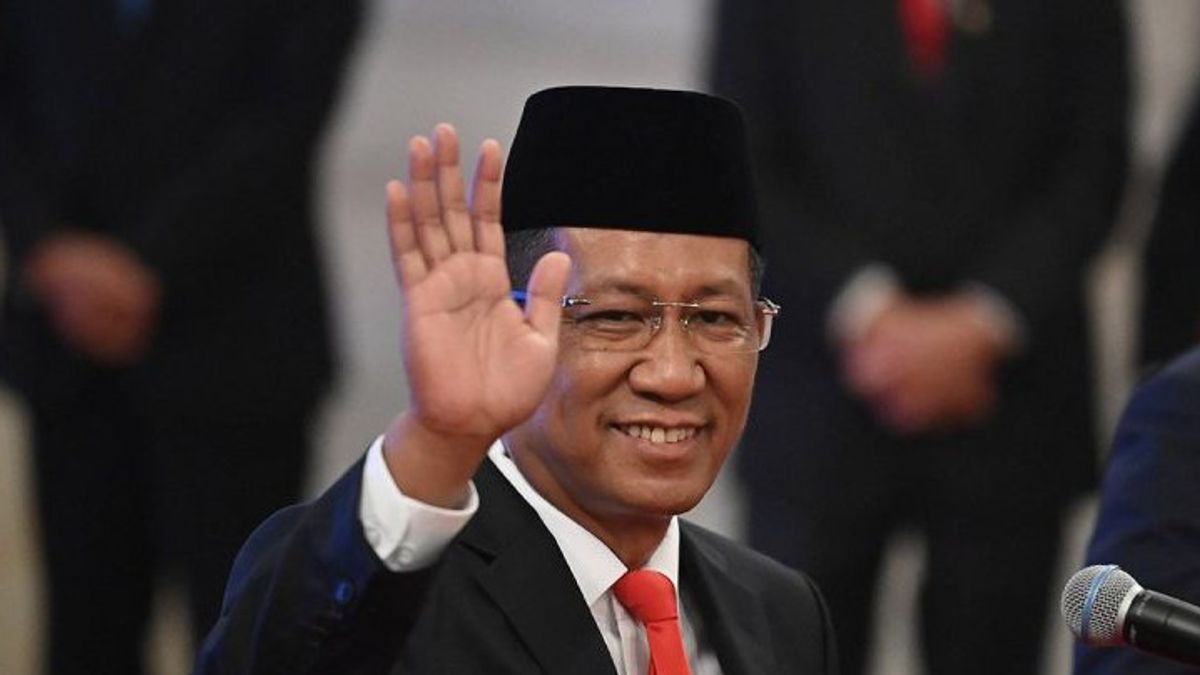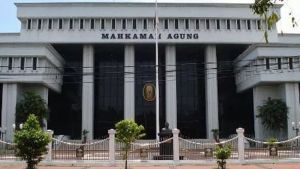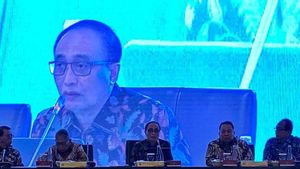JAKARTA - Minister of Law and Human Rights (Menkumham) Supratman Andi Agtas denied that the DPR had committed legal disobedience in revising Law Number 10 of 2016 concerning the Second Amendment to Law Number 1 of 2015 concerning Stipulation of Government Regulations in Lieu of Law Number 1 of 2014 concerning the Election of Governors, Regents, and Mayors into Laws (Law on Regional Head Elections/Pilkada).
According to Supratman, the DPR has the authority to draft and make laws by taking into account and considering various things, including the decision of the Constitutional Court (MK).
"I think everyone has a basis. Who says the DPR has committed disobedience? The constitutional duties given by the Basic Law have established a law. It is an institution that forms the law," said Supratman at the DPR building, parliament complex, Senayan, Jakarta, Wednesday, August 21.
According to Supratman, it is natural for a polemic of the new provisions or norms to occur. It's just that, he said, all parties need to respect the footholds that have a legal basis.
"I hope that the debates will always appear, right, but whether the steps taken have a legal basis. That's the only problem," he said.
Supratman emphasized that the DPR did not disallow the Constitutional Court's decision regarding the threshold for nominating regional heads promoted by political parties participating in the election. The DPR, he said, is an institution that has the authority to make laws.
It is known that the DPR will ratify the revision of the Pilkada Law in a plenary meeting on Thursday, August 22 at the DPR building, the parliament complex, Senayan, Jakarta. The revision of the Pilkada Law which took place in a marathon today, contains two crucial materials related to the nomination of regional heads.
The two materials are a condition for the age of candidates for governor and deputy governor (cagub-cawagub) at least 30 years at the time of the inauguration of the elected pair and the threshold or nomination threshold to the regions according to the decision of the Constitutional Court (MK) only applies to non-parlementary political parties.
Deputy Chairman of the DPR Baleg Achmad Baidowi or commonly called Awiek revealed that his party had written to the leadership of the DPR to schedule a plenary meeting to ratify the revision of the Pilkada Law.
"Yes, we have written to the leadership to schedule this bill because yesterday it was based on Bamus' decision that the revision of this law will be ratified in the nearest plenary session," said Awiek.
Awiek said that it happened that the nearest DPR plenary meeting would be held on Thursday (22/8/2024). He also hopes that the revision of the Pilkada Law will be ratified tomorrow so that it can be immediately promulgated and become a guide for holding the 2024 Regional Head Election (Pilkada).
Based on an invitation from the DPR with letter number B / 9827 / LG.02.03 / 8/2024, the plenary session will be held Thursday at 09.30 WIB. The agenda for this trial, namely the taking of level II of the revision of the Fourth Amendment Law on Law Number 1 of 2015 concerning Stipulation of Government Regulation in Lieu of Law Number 1 of 2024 concerning the Election of Governor, Regent, and Mayor into Law.
SEE ALSO:
It is known that the DPR and the government have approved the revision of the Pilkada Law which contains two important materials. First, the adjustment of Article 7 of the Pilkada Law related to the conditions for the age of nomination which refers to the decision of the Supreme Court (MA). Article 7 paragraph (2) letter e, it is agreed that the age is at least 30 years for candidates for governors and deputy governors, as well as 25 years for candidates for regents and deputy regents as well as candidates for mayors and deputy mayor candidates since the inauguration of the elected pairs.
Second, the amendment to Article 40 by accommodating some decisions of the Constitutional Court which amend the provisions of the election nomination threshold by imposing it only for non-parliamentary parties or not having seats in the DPRD.
Parties that have seats in the DPRD will still follow the old rules, which is at least 20% of the seat acquisition of the DPRD or 25% of the valid votes.
The English, Chinese, Japanese, Arabic, and French versions are automatically generated by the AI. So there may still be inaccuracies in translating, please always see Indonesian as our main language. (system supported by DigitalSiber.id)
















